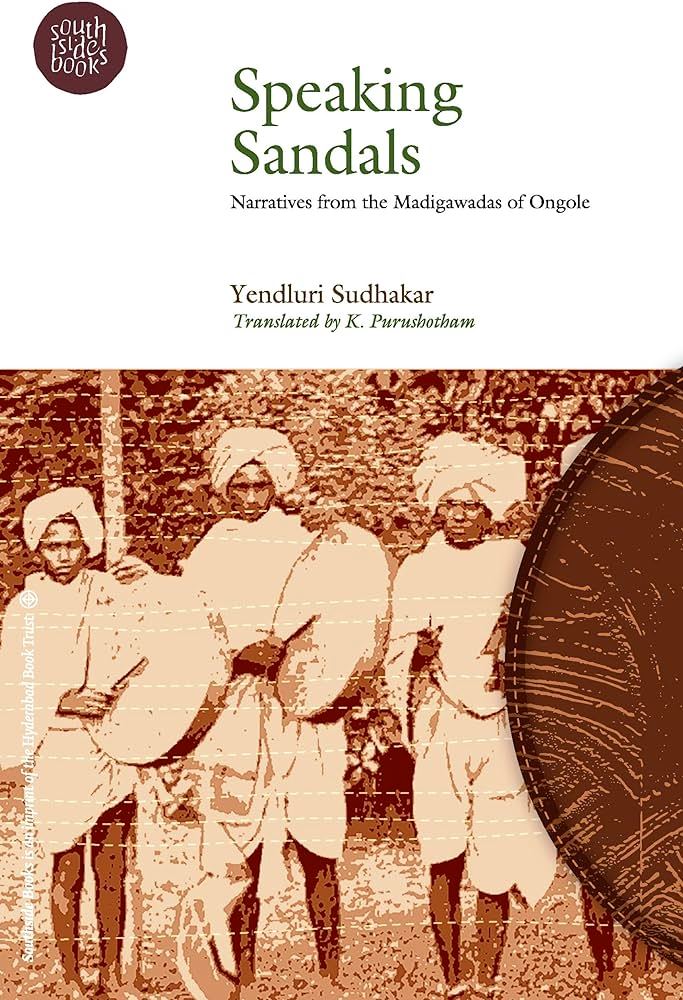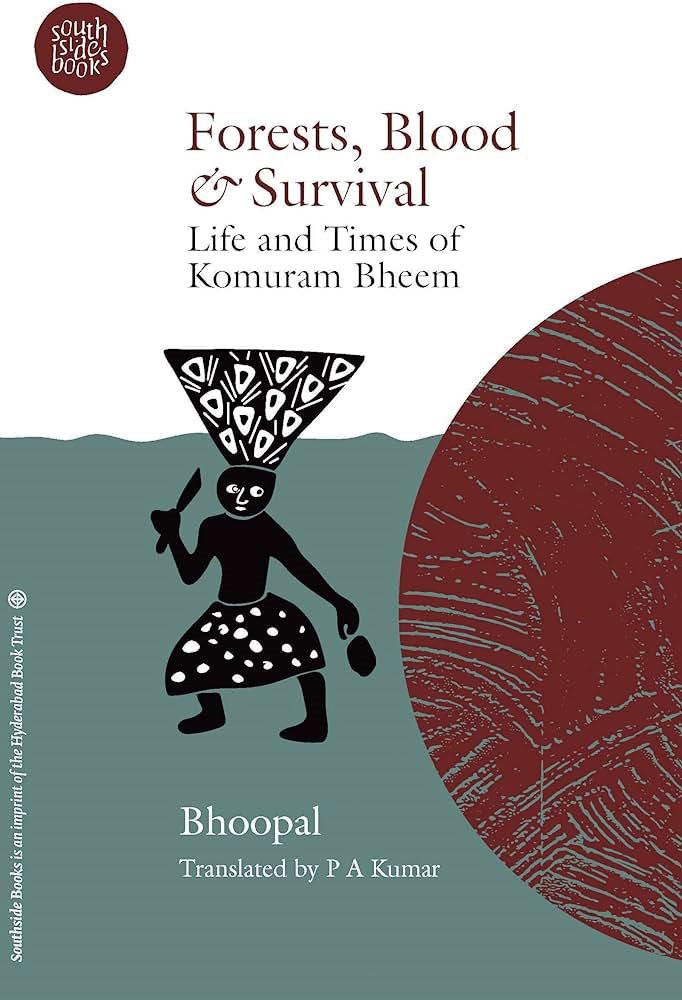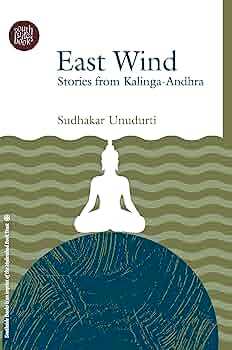The Hyderabad Book Trust, a not-for-profit collective, has, since 1980, inspired a few decades of Telugu readers with some of the finest literature, both from India and across the world. This was possible only with the support of readers like you. We are now responding to the changing circumstances with a new venture – an English imprint, SouthSide Books. This will enable you to share stories, narratives and discussions about your roots and heritage with your Indian-origin children and non-Indian friends.
SouthSide Books is dedicated exclusively to material relating to and emanating out of the Telugu/Dakhni speaking states, including from Urdu, and shortly, from the other southern states of India. This, we believe, is the first English language imprint by a publishing house to focus on material pertaining to a particular linguistic region. While English language publications in India have made tremendous progress over the last couple of decades, there is still a discernible lacuna in the material available to readers interested in books pertaining to particular regional cultures and ethnicities. English has become the primary reading language for exponentially growing numbers of people in the Telugu/Dakhni speaking world. We now have the unusual situation where readers, especially younger people, are interested in good literature, both fiction and non-fiction, pertaining to their region, culture, and politics, but are unable to read fluently in their mother tongues. SouthSide Books will cater to this readership.
What would we like you to do?
Support this venture by gifting our first set of three books at a mere US $30 to anyone, anywhere in the world by India-Post. You can pay Hyderabad Book Trust from an Indian account (UPI, NEFT, cheque), or from an overseas account via wire transfer, Western Union etc. Bank details are available on request. You can also send us 1,000 US$ and get all our English imprint books free anywhere in the world for the next five years. Send us more and we will gratefully acknowledge your contribution. Mail us at: southsidebooks.hbt@gmail.com for further details.
SouthSide Books’ first list will launch this month with a set of three books. These are:
- Speaking Sandals: Madiga Tales. Author: Yendluri Sudhakar. translator: K. Purushotham, Rs. 200.
- Forests, Blood and Survival: The Life and Times of Komaram Bheem. Author: Bhoopal. Translator: P.A.Kumar, Rs. 200.
- East Wind: Stories from Kalinga-Andhra. Author: Sudhakar Unudurti. Rs. 400.

Fascinating vignettes of Dalit folk-lore and oral history. When they first appeared in 1989, they were heralded as the first outpouring of the Madiga voice in Telugu literature. Writing with the imagery and cadence native to his community, the late professor Endluri Sudhakar’s stories are told in an endearing style of visits to his village and reminiscing conversations with relatives and elders. He writes about origin myths, drummers, fierce fighters, skilled artisans, strong matriarchs and other fascinating characters. Underpinning the stories is a robust awareness of the constant re-negotiations of caste hierarchies.
“What a heart-warming, absolutely un-put-downable book! The strength of the book is that it is composed of what feels like slices of life in the most intimate spaces of the community, where it reproduces itself in the face of caste hostility and the challenges of the modern world. A space relaxing enough for members to reflect on the oppression they live under but without despair or depoliticizing resentment or hatred. Full human beings, each and everyone who appears there, and despite the violence and dehumanization constantly attempted by the caste order. The pleasure of reading it is akin to that of gazing at a dark night sky so full of bright stars that you see the darkness but will not be intimidated by it.” – J.Devika, writer.

Bhoopal Reddy animates the life and times of the legendary Gond rebel. Beautiful descriptions of life in a forest-dwelling community amidst nature are contrasted with the precarious nature of their existence and the ruthless exploitation they are subject to by outsiders and the state. Based on anecdotes and scant evidence Bhoopal Reddy re-imagines Komaram Bheem’s fight and rebellion in a far more powerful and poignant way than the myths that surround this larger-than-life icon.
“A fine blend of ballad, myth and storytelling that illuminates the world of the Gonds during the 1930’s. Bhoopal shows us how a sensitive writer can transform narratives of the past that are alive in communities into compelling historical fiction.” – Bhangya Bhukya, Fulbright Nehru Visiting Scholar, Penn University.

Undurthi Sudhakar is in his home ground when telling stories from north-coastal Andhra Pradesh. With his deep knowledge of the region’s culture, he sets his stories in specific historical situations and contexts. His stories span a long period from antiquity to the present day – from declining Buddhist viharas and bustling sea-ports of the first millennium to the days of the colonialists and zamindars and finally to the tragedies of the Naxalite revolt in Srikakulam. His characters, tragic and comic, are caught up in a society going through the throes of change. A vivid introduction to a part of India that is not well represented in literature.
“The stories in this collection are rooted deeply in our ancient philosophy and the core values that cherish questioning and value learning. They invite and involve the reader to take part in these pursuits.” – Volga, writer.
Our next set of offerings within the next few months will include:
- The Buddha in my Backyard. Author: Rani Sarma.
- 1948 Hyderabad Readings.
- Gharana. Author: Suresh Sundaresan.
- Understanding Fascism: Writings on Class, Caste and the State. Author: K. Balagopal.
A travelogue from the pen of a historian, The Buddha In My Backyard, is a spell-binding account of the monasteries and artefacts ranging from the time of the Buddha in her backyard of Visakhapatnam district. She dwells on the destruction that time, an apathetic state and a society ridden with ignorance of history, have wreaked on these rich remains that speak of a society and culture long past.
1948 saw Operation Polo or Police Action as it is called – the Indian Army entering Hyderabad State and taking over its rule. While the actual military intervention saw minimal loss of lives, it caused a great rupture in the culture and politics of Hyderabad State, later, in truncated form, to become Andhra Pradesh, and even later, Telangana. The huge loss of lives and property before and after the Police Action that Muslims experienced also led them to a devastating (to them) loss of spirit. The Communists who had rapidly spread over Telangana’s villages were crushed by the Police Action. The nationalists celebrated the forcible overthrow of a sovereign state within the borders of India. Hyderabad Readings attempts to present these multiple voices to the readers in the form of extracts from rare books, articles, memoirs – letters even – to help the reader reconstruct history and view the problems of the present through history’s lens.
The story spans over four generations of a group of people, both from north India and from the Dharwad region, who are involved in Hindusthani music – their personal lives, their issues with each other – and related to their passion for music. From being a student and a disciple, to giving concerts of their own and developing an original style, to trying to make a name for themselves in a highly competitive and politicised industry and to, finally, have students and disciples of their own, thus completing the circle and starting a new cycle.
These essays are about the arduous task of building democracy and chart the contours of the justice system, in its everyday guise as well as when it sets out to make and implement policies. Authoritarianism, Balagopal points out, lies immanent in the dominance of the ‘national’ project by the hegemonic classes and castes. The elites have deliberately sought to work this as well as regional contradictions to their advantage. They do this by building a repository of social contempt and negativity against shifting targets – religious minorities, workers, civil rights activists, political dissenters, dalits and adivasis movements, and protesting women.
